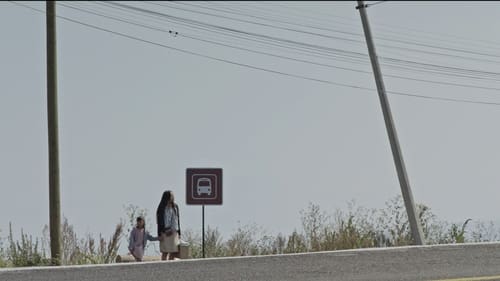Ana Tijoux
출생 : 1977-06-12, Lille, France

Music
Tere travels to sell her napkins with her daughter Flor, who loses one of her new shoes. Tere is forced to leave her alone for a moment, a fact that changes her life completely.

Self
Amid fond memories of the 1990s and the beginning of their respective professional careers, Ana Tijoux, Seo2, Cenzi and DJ Squat tell the story of Makiza, a fundamental band in the history of hip-hop made in Chile. They do not avoid any issue: neither the freedom of their creation, nor the harshness of Chile's democratic transition nor the tensions that led to the end of the group.

Theme Song Performance
칠레의 독재자 ‘피노체트’ 집권 시기, 독재자 암살에 실패한 ‘마누엘 로드리게스 애국전선’ 소속의 혁명가들이 악명 높은 산티아고 교도소에 수감된다. 독재자 암살의 목표를 굽히지 않은 24명의 혁명가들은 공학 박사인 ‘레온’의 치밀한 계산 아래 지하통로를 통한 탈옥 작전을 세운다. 아무런 탈출 장비도, 방법도 없는 상황에서 그들은 오직 독재 타도와 자유를 위해 하루에 몇 cm씩, 끝없는 전진을 이어간다.

Mss. Pilar
Chile 2006, a country that maintains the same public policies of the dictatorship of Augusto Pinochet. After 16 years in a state of democracy, young chileans still do not see any changes in the education system, so they decide to manifest in the streets starting a movement that finally manages to mobilize a nation.

Genoveva Photograph Recreation
A photograph of an unknown Mapuche great-grandmother is the starting point of this documentary essay. Through the analysis of said picture, conversations with family members, a trip to southern Chile cities, and an actress who re-enacts the photo, we see the existing prejudice against indigenous people.

Vocals
A photograph of an unknown Mapuche great-grandmother is the starting point of this documentary essay. Through the analysis of said picture, conversations with family members, a trip to southern Chile cities, and an actress who re-enacts the photo, we see the existing prejudice against indigenous people.

Theme Song Performance
A photograph of an unknown Mapuche great-grandmother is the starting point of this documentary essay. Through the analysis of said picture, conversations with family members, a trip to southern Chile cities, and an actress who re-enacts the photo, we see the existing prejudice against indigenous people.

Other
A photograph of an unknown Mapuche great-grandmother is the starting point of this documentary essay. Through the analysis of said picture, conversations with family members, a trip to southern Chile cities, and an actress who re-enacts the photo, we see the existing prejudice against indigenous people.

Self







